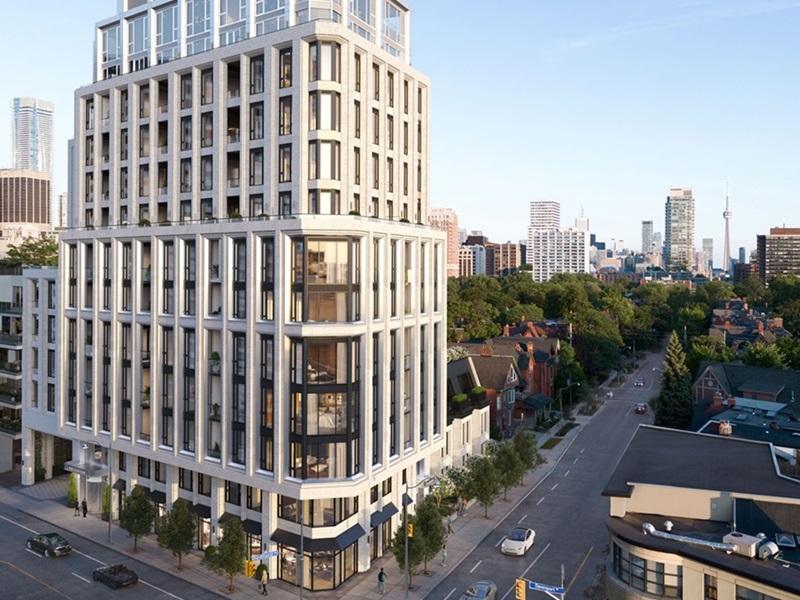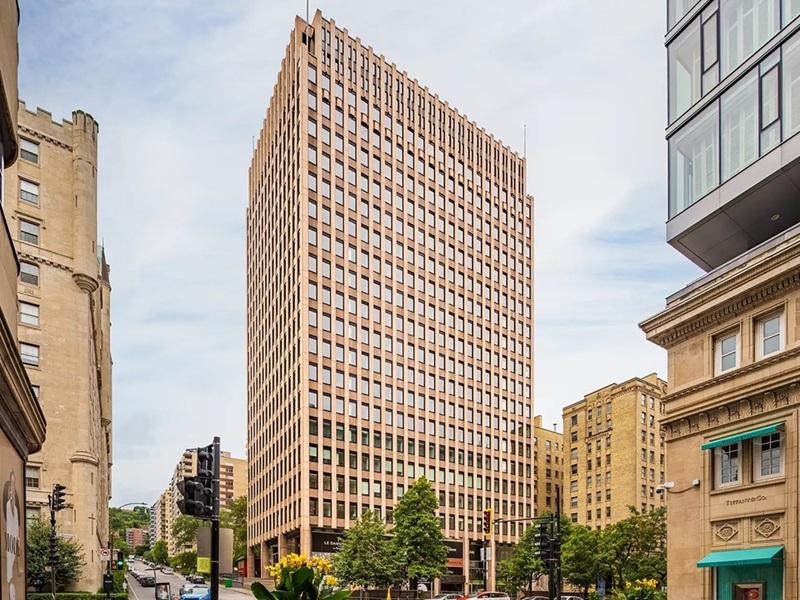
While the new condo market has gone cold, the rental market is where it’s at when it comes to housing starts in the Montreal area, attendees heard at the Quebec Apartment Investment Conference.
Condo starts in Quebec in 2024 were at their lowest level since the mid-1990s, said Francis Cortellino, an economist at Canada Mortgage and Housing Corp., during the recent conference at Montreal’s convention centre.
There is about a 16-month inventory of unsold condos in the downtown, compared to a balanced market which sees an eight-to-10-month inventory, said Sébastien Samuel, director at Altus Group.
By contrast, there is a historically high level of rental construction. About 20,000 rental units are being built in Greater Montreal, a new record.
For 2025, “everything in the pipeline is rental,” Cortellino said.
Andréanne Lavallée, an appraiser and partner at Transacte Agence Immobilière, said the Montreal census metropolitan area made up 28.2 per cent of the Canadian inventory of new rental housing units in 2024 (20,657 of 91,895), according to a CMHC survey. That placed it far ahead of Toronto at 14.4 per cent and Vancouver at 5.4 per cent.
Most housing starts for rental apartments
Noémie Lefebvre, director, real estate development and land at Altus Group, said 2024 saw a 15 per cent increase in housing construction starts (17,570) in the Montreal census metropolitan area versus 2023 (15,235), a number that is still below pre-pandemic levels. Eighty per cent of the starts were for rental apartments, 10 per cent for single-family homes and 10 per cent for condos.
By comparison, housing starts were down 15 per cent in Vancouver and 20 per cent in Toronto, she said.
Samuel added there is a golden opportunity for developers to build long-term care centres in Quebec, known as CHSLDs.
With the recent closings of several rundown CHSLDs in the short and medium term and demand rising (an estimated one-in-four Quebecers will be 65 or older by 2031), 40,000 new beds for seniors will have to be built in the next 15 years, he said. That’s the equivalent of 2,700 beds per year, representing an annual investment of $1 billion.
The Quebec government has announced that private public partnerships will be needed to allow this quantity of construction starts to happen, Samuel noted. This means “there is a golden opportunity” for builders to fill their order sheets for several years.
In addition, Samuel said there is the potential for several aging but well-located CHSLDs to be converted into multifamily rental units in the medium- to long-term.
Multifamily investment outlook
When it comes to investment in the multifamily sector, factors critical to success continue to evolve, Lavallée said.
“Yes, cap rates are important for transactions. Yes, financing Is super important, but the key to success is the potential to raise rents.”
On that front, the news for rental property owners is good this year. Quebec’s rental tribunal, the Tribunal administratif du logement, is suggesting a 5.9 per cent increase in rents this year for unheated apartments (rentals where the tenant pays the heating bill, not the landlord). That is the largest increase in at least 30 years.
Samuel said Altus Group’s Q4 2024 CRE industry conditions and sentiment survey shows there is an air of optimism in Canada’s residential sector.
When it comes to transactions, “we were in a permanent waiting mode,” for the past two years. But the wait-and-see period has come to an end.
When asked “Are you ready to transact in the next six months,” 77 per cent of respondents in Canada said yes, compared with 67 per cent in Q4 2023.
The survey found the multiresidential, industrial and seniors’ residences sectors are slated to perform the best this year, Lefebvre said.
Canada's fundamentals "very solid"
Despite issues like tariffs or the war in Ukraine, Canada’s long-term fundamentals are “very solid compared to other G7 countries,” said Guillaume Jacob, senior vice-president at CBRE. “When it comes to population growth over the next five years, Canada dominates. When it comes to employment growth, it’s the same thing.”
Canada is second lowest to the U.S. when it comes to the number of private homes per 1,000 residents, Jacob said.
When institutional clients or global investors look at these fundamentals, “they’re very satisfied with what they see in Canada and we’re having more and more conversations with groups that didn’t look at Canada before.”
Jacob added that Canada’s largest cities have the lowest multiresidential vacancy rates among major North American cities.
According to CBRE and CMHC research, multiresidential vacancy rates in 2024 were 1.6 per cent in Vancouver, 2.1 per cent in Montreal and 2.5 per cent in Toronto. By comparison, New York stands at 3.1 per cent, San Francisco at 4.2 per cent and Washington at 4.6 per cent.
Jacob noted there is a clear imbalance between supply and demand in Canada’s three biggest cities with the very low vacancy rates, creating a strong investment opportunity.










